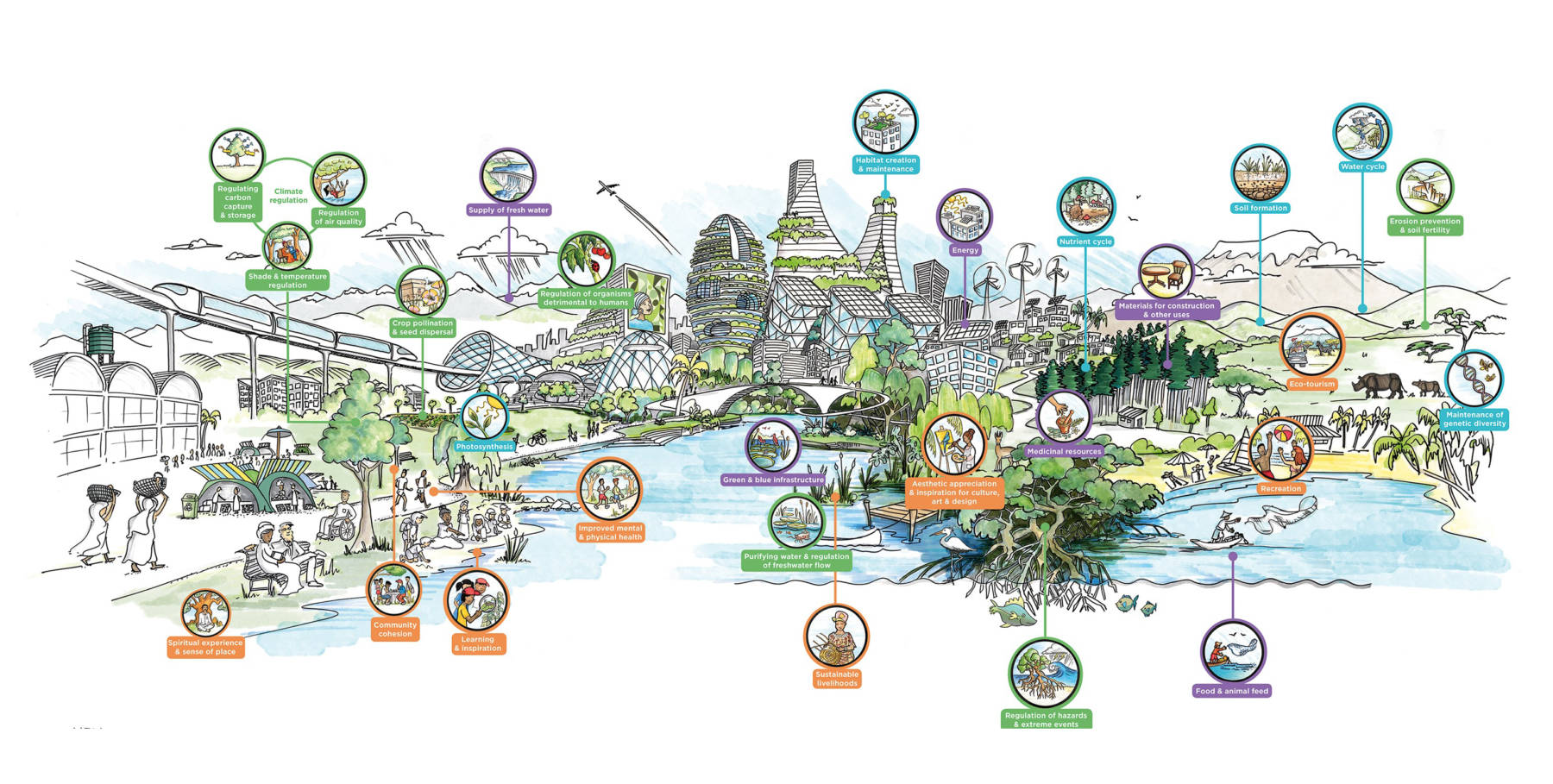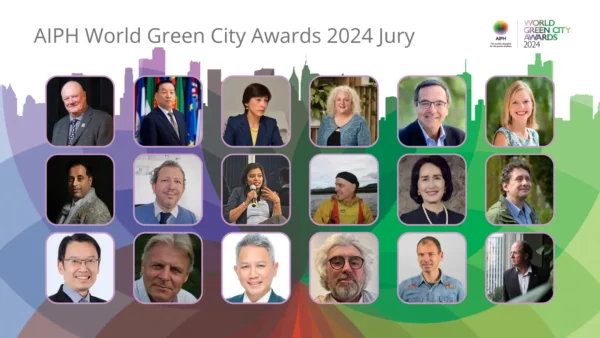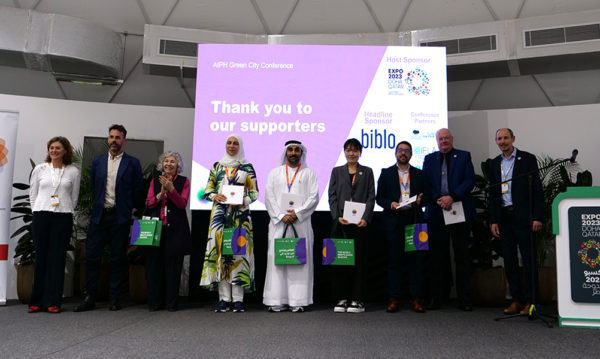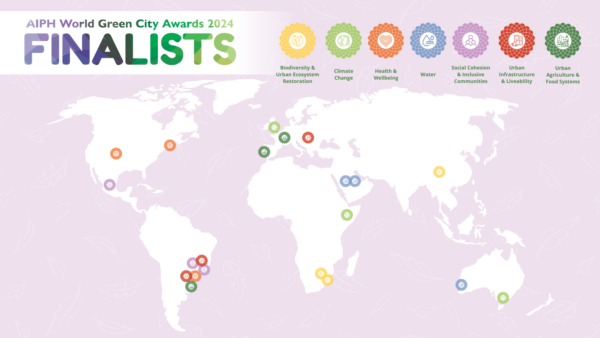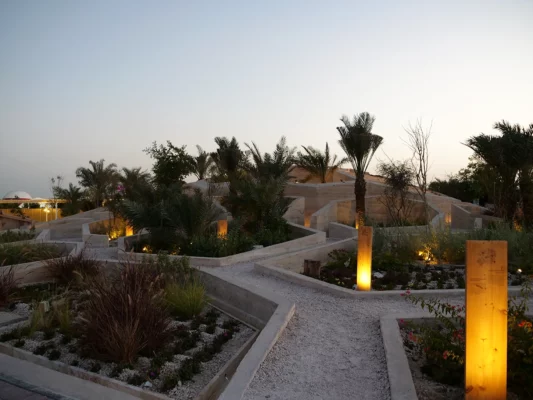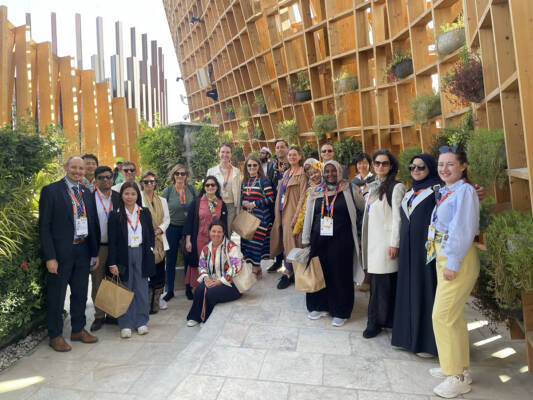As the year 2020 gathers momentum, promises are made globally to secure the future of humankind and this planet that we call home.
Climate change and its impact on the environment and natural systems remains the focus of decision makers. At the C40 Mayors Summit in Copenhagen in 2019, newly elected Chair of C40 and Mayor of Los Angeles, Eric Garcetti, announced the support of C40 mayors for a Global Green New Deal. This call for a deal responds to disappointing intergovernmental action, and a recognition that mayors and local government leaders have
both the responsibility and the authority to “drive an urgent, fundamental and irreversible transfer of global resources away from fossil fuels and into action that averts the climate emergency.” To avoid the worst impacts of climate change global emissions must be cut in half by 2030. In parallel with this, the European Commission announced a European Green Deal with the ambition to achieve a carbon neutral economy by 2050.
SHIFT IN DIALOGUE
Reducing emissions is a clear and essential goal, and advances in city design and operation offer innovative solutions to mitigate climate change. Responding to any crisis, however, requires two approaches: firstly to address the cause of the problem – in this case, strategies to reduce the magnitude of climate change; and secondly to reduce the effect, or impact of the crisis – in this case, reduced quality of life of city residents and damage to natural systems. As measures to reach these targets unfold, attention naturally moves to adaptation measures, with practical ways of improving quality of life and supporting urban biodiversity. Nature and nature-based solutions respond to these needs. We are seeing a shift in the dialogue, with the concept of sustainability being overtaken by the need for resilience. Sustainability is about using resources wisely and effectively. Resilience goes beyond this to provide elasticity and flexibility that
enable city systems to adapt, repair and recover from disturbance. Plants have an essential role to play in city resilience, providing adaptation solutions that reduce the impacts of climate change. To address this changing need, new global initiatives are starting up with nature in the city as a core theme.
CITIESWITHNATURE
ICLEI has long been active in supporting a global network of local and regional governments committed to sustainable urban development. Recognising that our collective future is increasingly urban and the subsequent loss of nature is part of the problem, it is clear that restoring nature is part of the solution. The CitiesWithNature partnership was founded to provide a shared online platform for a growing network of local
and subnational governments to facilitate cooperation and exchange of knowledge and experience. The initiative recognises that collective local action can achieve global impact in mainstreaming nature in and around our cities. As an informative inspiration ICLEI and partners developed an interactive poster that illustrates the many and diverse life-supporting and life-enhancing benefits that nature provides. Reaching a global audience, the poster is available in 7 languages: English, Arabic, French, Portuguese, Spanish, Swahili, and Chinese.
NATURE-BASED SOLUTIONS
Earthwatch recently introduced their research programme centered around the concept of “climate-proof” cities. The programme studies how nature based solutions connect urban green spaces and water bodies to protect the city from the negative consequences of climate change. Nature-based solutions are methods, technique and systems that use nature, or mimic natural processes. Bringing together researchers and policy makers, the programme involves 17 major cities around the world. The programme also monitors the wide range of benefits that nature-basedsolutions bring, including promoting urban biodiversity, storing carbon, and improving health and well-being of citizens.
BEYOND URBAN BOUNDARIES
The responsibility of cities extends beyond its urban boundaries. Cities are dependent on resources around and distant from the city, such as clean fresh, water, and clean air. The World Resource Institute initiated the Cities4Forests programme to create and encourage bidirectional support between cities and forests. The programme catalyses political, social, and economic engagement to integrate inner city forests, nearby forests, and distant forests into city development policies and plans. Cities that join the programme are invited to share current best practises, and receive technical support from a global network with expertise in forests, climate change, water management, communications, finance, and policy. These powerful programmes are among many that bring an important focus onto
the next natural step beyond reducing climate change – recovery from climate change.













